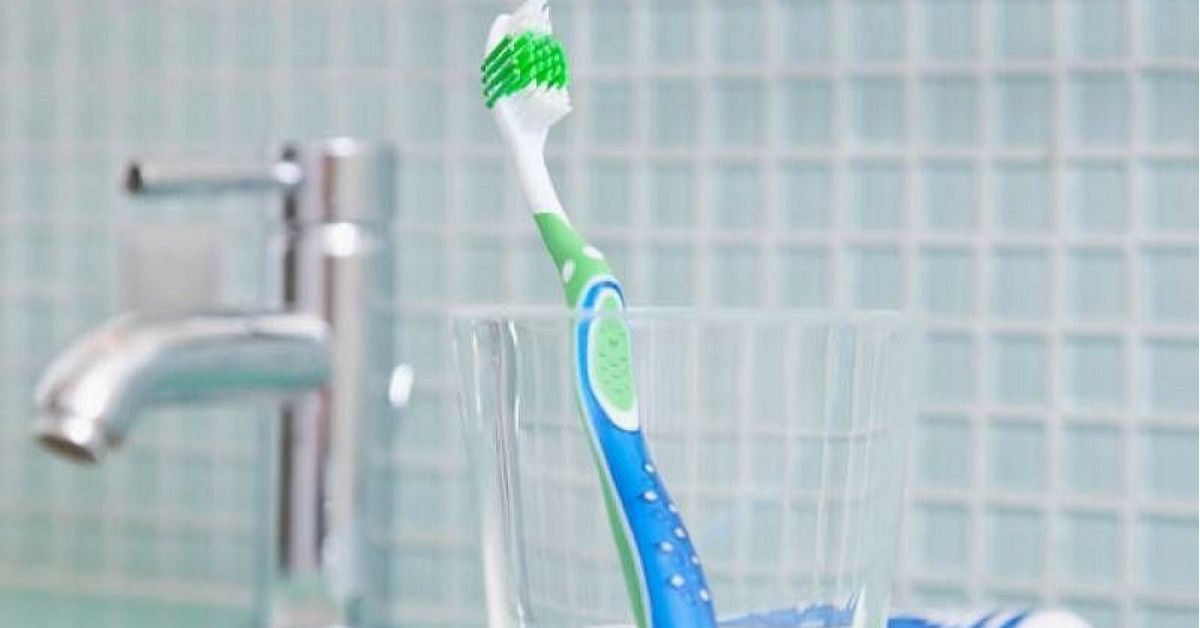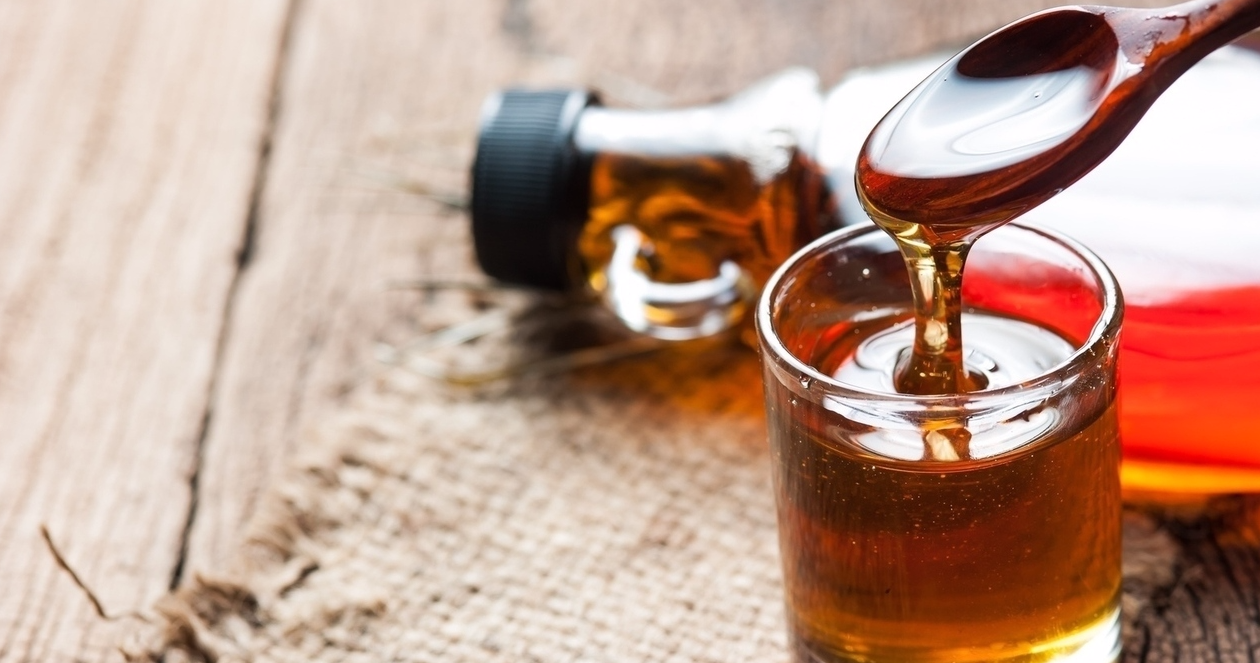Ever since I was a young girl, I've had a habit of running my toothbrush under water before adding toothpaste on it. I only started doing this to prevent the paste from getting washed off the brush if I reversed the order.
Turns out, that it's a practice that everyone should be doing, according to scientist and germ expert Jason Tetro, who has authored the books The Germ Code and The Germ File.
Tetro also advises running "your toothbrush under really hot water for a few seconds after every time you brush," to keep the germs or bacteria from your mouth from multiplying on your brush.

It's hard to believe but your toothbrush is one of the dirtiest objects you come into contact with on a daily basis. In fact, Miryam Wahrman, author of The Hand Book: Surviving in a Germ-Filled World, said a toothbrush "could be much worse than a toilet seat" as more than 10 million bacteria call it home.
So how are these germs getting on your brush?
As mentioned above, your mouth contains 100-200 species of bacteria and every time you brush your teeth, some of them are transferred onto the bristles.
"In an unbrushed mouth, there can be as many germs as a dirty bathroom floor," Dr. Ann Wei, a prosthodontist based in San Francisco told Huffington Post.
The splashing from washing hands in the sink is also another way your toothbrush is getting contaminated.
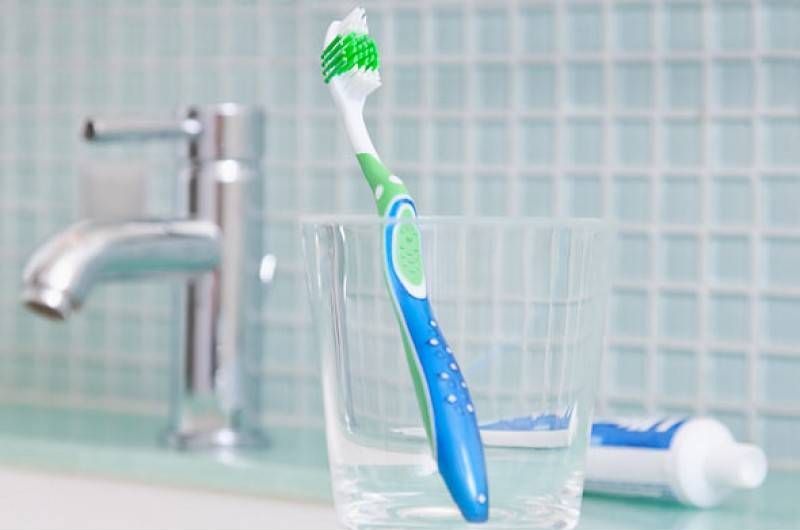
However, the biggest culprit is the toilet.
By having your toothbrush resting on the sink, which is often next to the toilet, you're making it easy for airborne pathogens to latch onto the bristles.
Every time you flush with the toilet with the lid open, bacteria and viruses from fecal matter are launched into the air, and they remain floating long enough to end up on different surfaces around the bathroom, including your toothbrush.
A study by the National Sanitation Foundation (NSF) found coliform, the bacteria in fecal matter, was present on nine percent of bathroom faucets and 27 per cent of toothbrush holders. Gross.
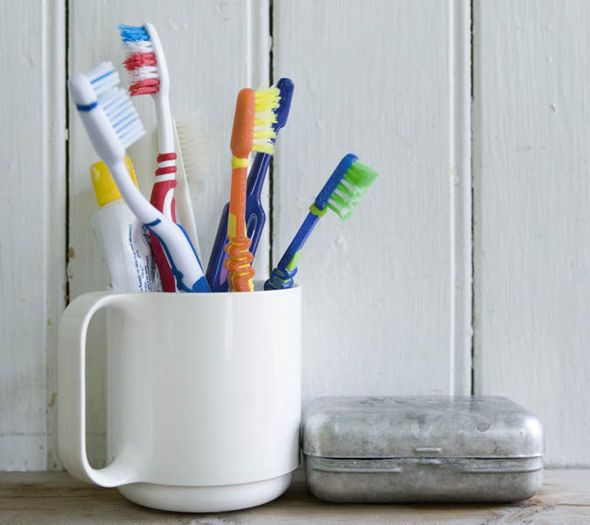
One of the main reasons why many of us aren't getting ill from our toothbrushes is because the toothpastes we use contain antibacterial agents.
Still, the thought of aerosolized feces, also known as toilet plume, on something that goes in our mouths is enough to make anyone gag.
How can you protect your toothbrush?
1. Change it regularly
First of all, experts at the American Dental Association (ADA) recommend that you swap your brush for a brand new one every three months.
This is mainly because frayed bristles lose their rigidity and won't clean your pearly whites nearly as effectively as they should, and a new brush also tends to house less bacteria.
2. Keep it dry
Secondly, allowing your tooth brush to dry after brushing will discourage bacteria from multiplying. The medicine cabinet is the best place to store your toothbrush in between uses.
3. Close the lid
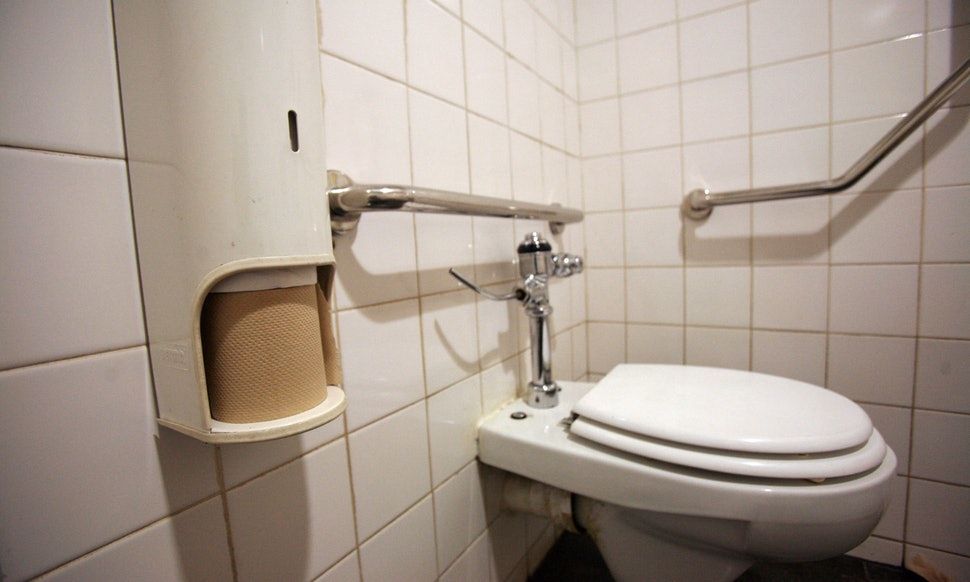
The best thing you can do is to keep your toothbrush as far away from the toilet as possible, but if that's not possible, you should always close the lid before you flush.
4. Choose the right toothpaste
Most toothpastes contain antibacterial properties, but not all of them are created equal. Look for one that is made with triclosan/copolymer. Also, if you live with others, you can limit the spreading of germs by never letting the opening of the toothpaste touch the bristles of the brushes.
"If you are a family that shares, when you squeeze the toothpaste onto brushes, do not press the paste opening to the brushes. Instead, it's better to lay the toothpaste over the brush without physically contacting the toothpaste opening," advises Dr. Wei.
5. Disinfect regularly
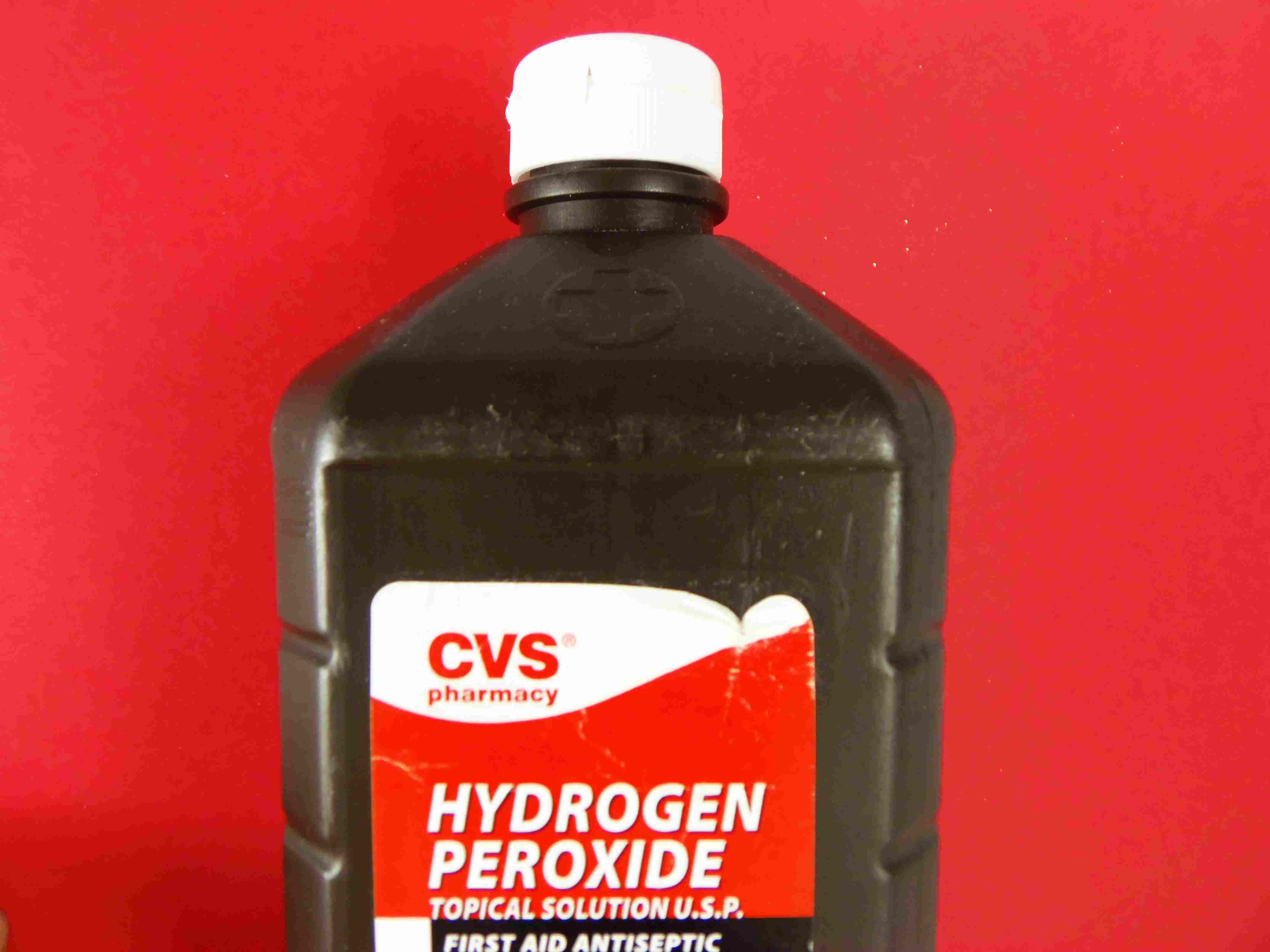
Hot water alone isn't enough to keep your brush clean, so occasionally soak the bristles in hydrogen peroxide or even an antibacterial mouthwash, just make sure to rinse it thoroughly with water. This is especially important if you have dropped your toothbrush on the floor.
6. Never share
You should never share a toothbrush, period. Even if it is with your partner. Everyone has different bacteria in their mouths, and they become harder to eliminate when they mix.
7. Do not use plastic covers
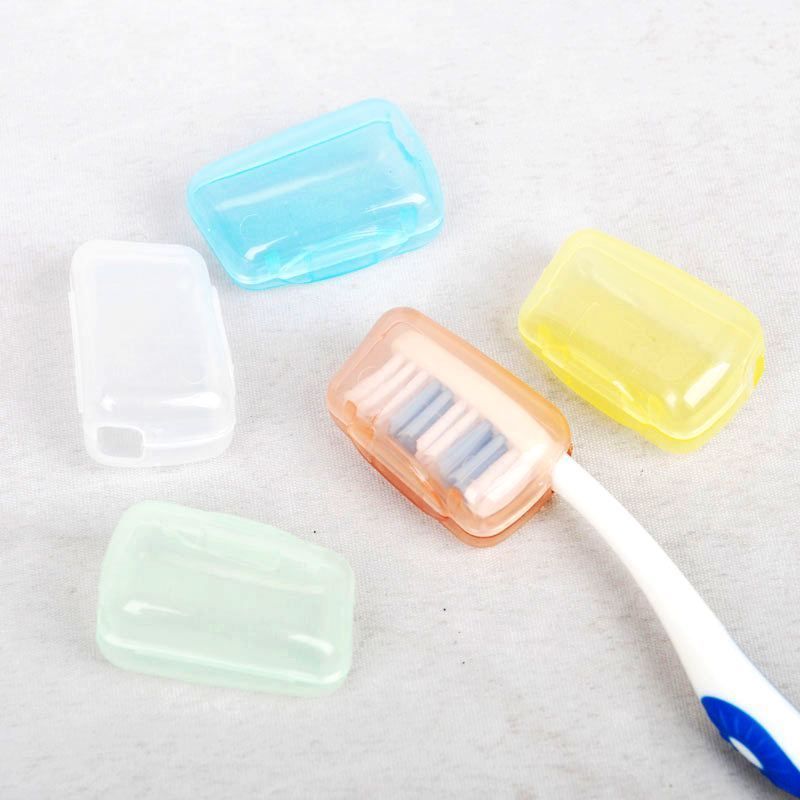
Avoid using plastic bristle covers because not only do they keep the brush from drying, they also encourage the growth of mold.
Keeping toothbrushes together in one container is also a bad idea because bacteria can easily spread between the brushes as the heads touch.
In addition to toothbrushes, you should also be wary of where you place other items like your loofahs, shower poufs, and washcloths.
"Things that have a high amount of surface area where bugs can get in need to be washed or replaced regularly," explained Tetro. "A shower pouf or a loofah are perfect examples. They're more porous versions of sponges, and if the kitchen sponge study gives you any perspective [wherein German scientists found 362 different types of bacteria on kitchen sponges], you need to clean them often."
To ensure they remain bacteria-free, wash them in hot water and soap or vinegar. Soak them in this solution for 20-30 minutes for optimal results. You should do this at least once a month.
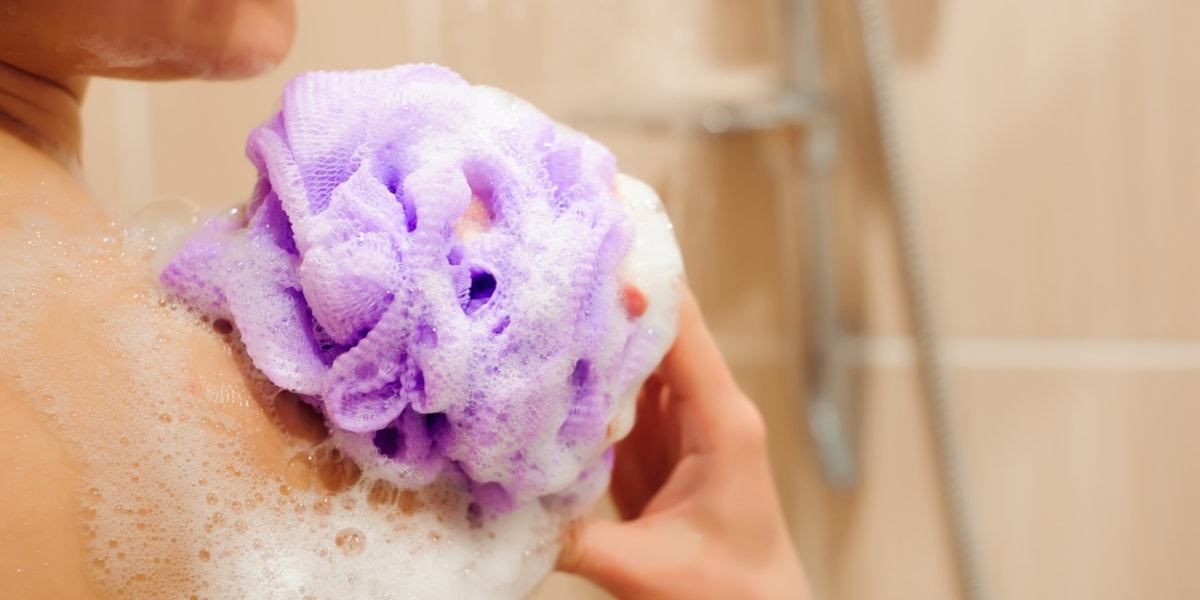
Makeup brushes should also be cleaned as frequently as once a week, according to dermatologists. However, if that's too much, celebrity makeup artist Bobbi Brown says aim for twice a month for brushes that you use around the eyes, and once a month for all others.
The best way to clean these brushes is with lukewarm water and soap. Once all the gunk is out, dry them with a clean towel, reshape the bristles, and let them dry over the edge of the sink or a table.
You risk the chance of losing their natural shape and mildew getting in them if you lay them flat to dry.
These tips will hopefully help you reduce the amount of bacteria that's lurking in the items you use every day.
Where do you keep your toothbrush? Let us know in the comments.
